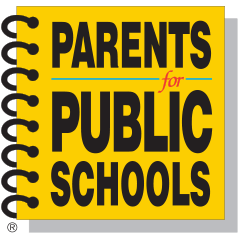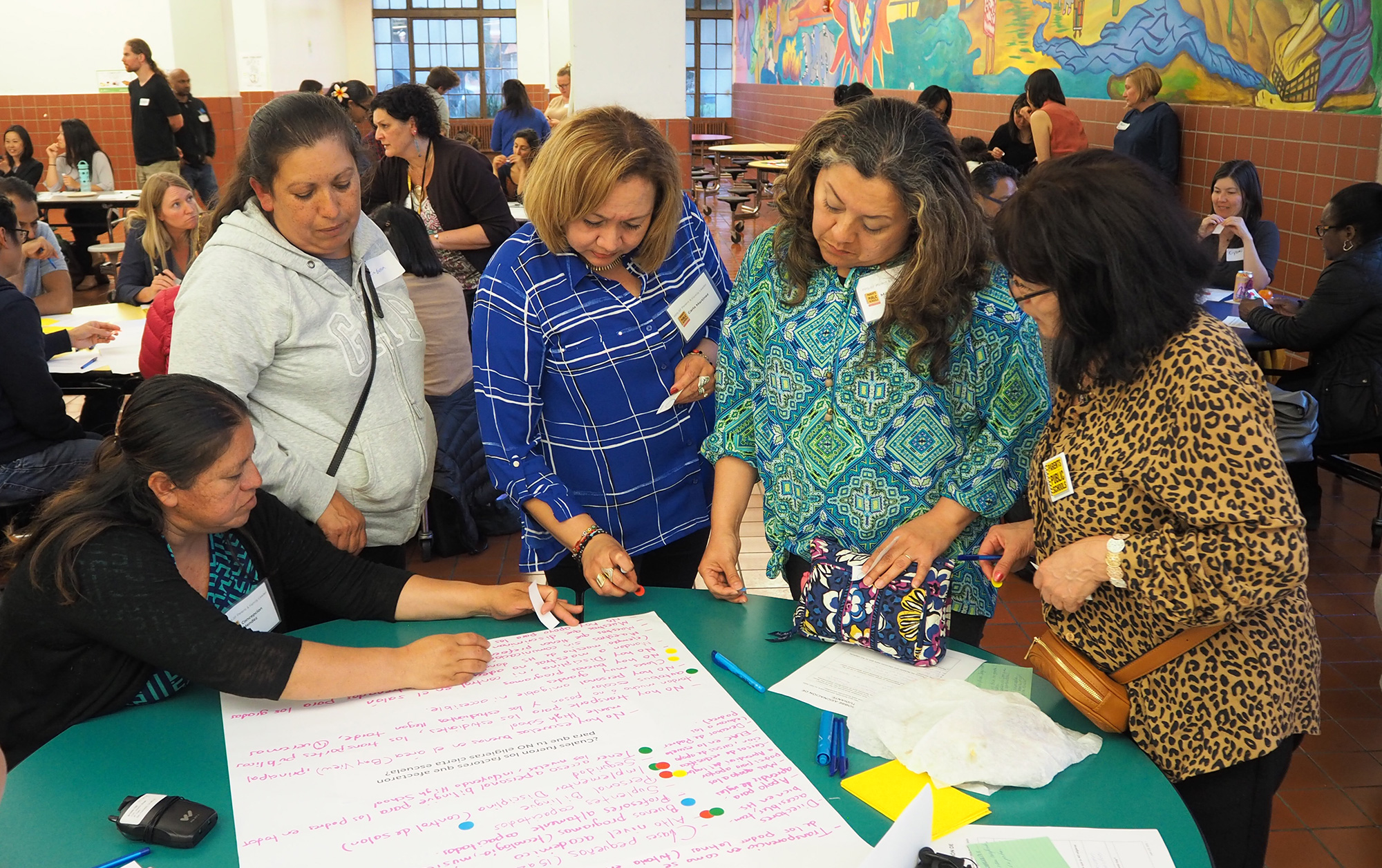PPS authored a chapter in the 2019 book, The Ripple Effect in Action: What 7 Parent Leadership Programs Learned from Participatory Evaluation. The project was coordinated by New York University’s Metropolitan Center for Research on Equity and the Transformation of Schools.
Methods
A team of Parents for Public Schools parent leaders and staff joined with parent leadership organizations nationwide to form the Parent Leadership Evaluation Network (PLEN). PLEN members received extensive training and coaching from Dialogues in Action in a participatory, qualitative evaluation process designed to elicit evidence of transformative impacts. Evaluation questions included:
- What kind and quality of impact are we having on our parent leaders?
- What aspects of our program are causing this impact?
A stratified sampling technique was used to select a representative sample of parent leaders – who had participated in PPS’s Parent Leadership Institute (PLI) or Parent Engagement Programs (PEP) – and then conducted in-depth interviews with 23 of them. We collectively analyzed the data gathered from the interviews to generate themes and then consider the implications for those findings on program improvement and innovation.
Key Findings
- The more I know, the better I can be
“I know more, so I am able to do more, and I am happy to do more.”
Learning how the school system works and gaining a deeper understanding of public school issues, moves parents to action. Parents arrive concerned about their own children’s education and they leave wanting to make things better for all children
- When I think I can, I will
“If change is going to happen in Mississippi, it has to start with changes in the Legislature—we have to look beyond our own child’s interest.”
Instead of feeling helpless, our PEP participants now believe there is something that they can do to affect the situation, and, in fact, something they should do. No longer do they see school district or community leaders as the only ones with a say in what happens
- Strong Schools, Strong Communities
“Without quality public schools, we wouldn’t have successful communities, successful neighborhoods, successful households, a public will, a better functioning society, or even meaningful conversations.”
When parents become more aware of the far-reaching impact of education, they see how essential quality public schools are to the very heartbeat of their communities.
4. Family engagement, the little engine that could
“While it is very clear to us at PPS that family engagement is a school reform strategy, it does not appear that we are making this clear to our PEP participants.”
Though research about the value of parent engagement is shared throughout the training, the fact that our interviewees did not mention this premise at all is a clear indication that we are not emphasizing this concept enough.
5. I can see clearly now…
“I came out of PPS training realizing that every school should be able to provide their students with the best education, and the quality of education a school provides should not be equated to the area where it’s located.”
The parent leadership training not only moved parents away from local concerns toward state-level and even national issues, it also helped them consider what the quality of education is like for parents who are different from themselves
Key Recommendations
- Add a training module on community organizing to our training to give parents a focus for advocacy efforts and key skills for developing relationships and building power in numbers.
- Organize and mobilize our education stakeholders to pay close attention to upcoming state elections and vote for candidates who support strong public schools.
- Use our issue guide Ensuring the Future: What Should Communities Do to Help Children Succeed? to host deliberative dialogues on education issues and to help PEP participants understand the correlation between quality education and thriving communities.
- Revise the PEP Introduction Module to clarify that the purpose of the parent engagement curriculum is to prepare parents for their vital role in school reform.
- Be more intentional about equity in our training.
- Continue to use the survey developed by NYU to gather information, draw conclusions, and make appropriate adjustments to our parent leadership offerings.
To download the full book, purchase a hard copy, or read the summary, please visit https://research.steinhardt.nyu.edu/metrocenter/resources/parent-leadership-indicators-project.

